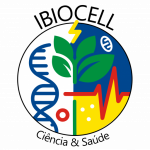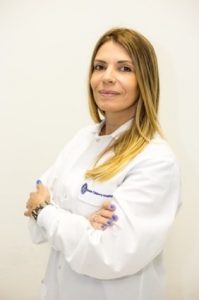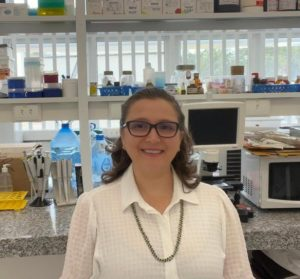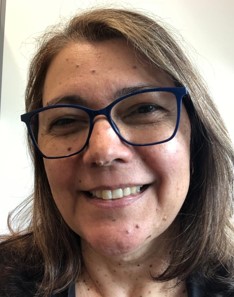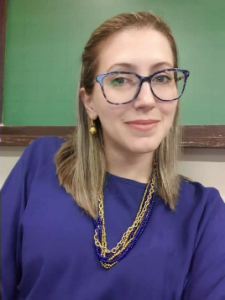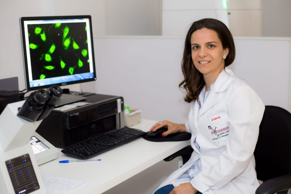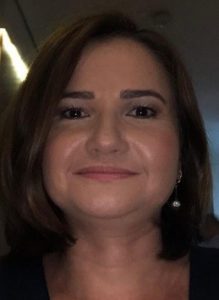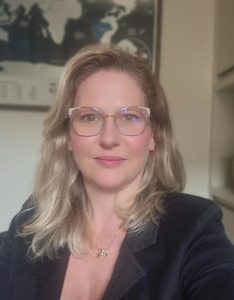4. Colaboradores
Profa. Dra. Alexandra Latini 
Laboratório de Bioenergética e Estresse Oxidativo – LABOX
Departamento de Bioquímica
Centro de Ciências Biológicas
Universidade Federal de Santa Catarina
http://lattes.cnpq.br/2997646137447229
https://orcid.org/0000-0003-4255-3589
Alexandra Latini is an associate professor at Universidade Federal de Santa Catarina in Brazil and coordinates the Laboratory of Bioenergetics and Oxidative Stress (LABOX). LABOX was established in 2007 and is dedicated to the study of the biology of tetrahydrobiopterin (BH4) metabolism and mitochondrial energy production in physiological and pathological chronic conditions. By combining extensive background in the field of genetic metabolic disorders, state-of-the-art cellular and molecular technologies, and knowledge on cytotoxic pathways, including oxidative/nitrosative stress, inflammation/inflammasome activation, mitochondrial physiology and dynamics, LABOX’s overarching goal is to gain a better understanding of how perturbations of BH4 production and bioenergetics may trigger chronic diseases. In addition to LABOX’s deep commitment to scientific research and teaching, the research group understands the need to train highly qualified human resources for the generation of basic knowledge, the fundamental basis for sustainable socio-economic development of any country. LABOX has been actively promoting the internationalization of our UFSC since 2008, by establishing agreements with institutions of international prestige to stimulate academic and scientific networking to ensure the transfer of knowledge and to prepare our students/scientists, in particular young women and underrepresented or marginalized groups, to be competitive in modern academic and professional environments.
Profa. Dra. Ariane Zamoner Pacheco de Souza 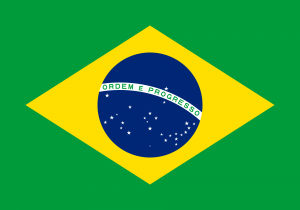
Departamento de Bioquímica – Centro de Ciências Biológicas
Universidade Federal de Santa Catarina
http://lattes.cnpq.br/8658561005363691
https://orcid.org/0000-0003-2844-8563
https://labiosignal.paginas.ufsc.br/
Pharmaceutical and Biochemical scientist with a Master’s degree in Pharmacy, a Ph.D. in Biochemistry, and postdoctoral expertise. Served as a visiting professor at the Department of Chemistry, University of Aveiro (Portugal), and currently holds the position of Associate Professor at the Department of Biochemistry/CCB/UFSC. Holds accreditation in the Postgraduate Programs in Biochemistry-PPGBQA-UFSC and Pharmacy-PGFAR-UFSC. Recipient of research project approvals and funding from FUNPESQUISA-UFSC, FAPESC/Jovem Pesquisador, FAPESC/PPSUS in 2009, 2016, and 2020, Universal CNPq in 2011, 2018, and 2021. Research focus encompasses cellular and molecular mechanisms of action of hormones, toxic compounds, and endocrine disruptors, including hormones, ethanol, natural compounds, and pesticides across diverse biological systems. Engaged in international collaborative projects with researchers from Uppsala University (Sweden), Stockholm University (Sweden), University of Aveiro (Portugal), and University of Porto (Portugal). Previously served as the coordinator of PPGBQA-UFSC from 16/03/2016 to 01/01/2021 and as the coordinator of a subproject in the CAPES-PrINT Internationalization Program at UFSC from 2018 to 2023. Beyond the realm of academia, balancing the roles of a dedicated mother to twins, Pedro (living with cerebral palsy), and João, who were born prematurely in 2014.
Profª Drª Eloísa da Silveira Loss 
Departamento de Fisiologia
Instituto de Ciências Básicas da Saúde (ICBS)
Universidade Federal do Rio Grande do Sul (UFRGS)
E-MAIL: eloss@ufrgs.br ou eloisaloss@gmail.com
ORCID ID: https://orcid.org/0000-0001-6584-6857
LATTES ID: http://lattes.cnpq.br/2870600036896513
Research ID: https://www.researchgate.net/profile/Eloisa-Loss
Biologist with a master’s degree and a PhD in Biological Sciences, with an emphasis on Physiology. Full Professor in the Department of Physiology, ICBS, Federal University of Rio Grande do Sul. Holds accreditation in the Graduate Program in Physiology – ICBS/UFRGS. Leader of the research group Laboratory of Experimental Endocrinology and Electrophysiology (LABENEX), which is registered in the Directory of Research Groups of Brasil Lattes, CNPq. His main line of research is electrophysiology of endocrine tissues, presenting several works using the electrophysiological technique of intracellular recording in seminiferous tubules from immature rat testes. More recently, she has focused on the study of membrane effects of steroid hormones on ion channels and intracellular signaling.
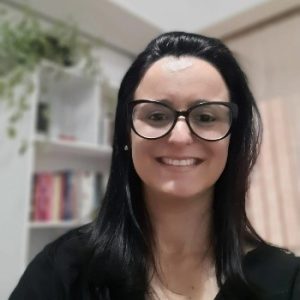
Profa. Dra. Fabiana Ourique da Silva 
Departamento de Bioquímica, Instituto de Ciências Biológicas
Universidade Federal de Juiz de Fora – Minas Gerais
https://orcid.org/0000-0002-2663-4015
https://lattes.cnpq.br/0201174165231818
Professor at Department of Biochemistry, UFJF/Brazil. Undergraduate in Pharmacy and Biochemistry (UFSM/Brazil), Master in Nutrition with focus in Metabolism and Dietetics (UFSC/Brazil), and PhD in Biochemistry (UFSC/Brazil) with a doctoral internship carried out at Institute of Biomedicine and Biotechnology of Cantabria – IBBTEC (Spain) as a member of the Cancer Molecular Biology Group. Postdoctoral in Biochemistry (UFSC/Brazil) and in Pharmacy (UFSC/Brazil). Research focus on studying the molecular bases of cancer and the biological activity of new molecules from natural and synthetic sources as pharmacological alternatives for cancer treatment, with a view to elucidating the mechanism of action of these molecules, as well as effects on the signaling pathways involved in the tumorigenesis process. Recipient of research project approvals and funding from FAPEMIG/Universal 2024. Engaged in an international collaborative project with researchers from National Institutes of Health (NIH)/USA for the development of nanobodies for cancer therapy. Coordinator of the research group linked to CNPq: Translational biochemistry applied to health: macromolecules, cell signaling and toxicology (UFJF).
Dra. Fernanda Carvalho Cavalari 
https://lattes.cnpq.br/2988363592770311
https://orcid.org/0000-0002-2586-7896
Postdoctoral fellowship (CNPq) in the Graduate Program in Pharmacy. Holds a postdoctoral fellowship in the Graduate Program in Biochemistry from the Federal University of Santa Catarina (UFSC), Ph.D. and M.Sc. in Biological Sciences (Human Physiology) from the Federal University of Rio Grande do Sul (UFRGS), and a Bachelor’s degree in Biological Sciences (Teaching and Bachelor) from the University of Cruz Alta (UNICRUZ). Proficient in the techniques of intracellular recording Electrophysiology and Patch Clamp in the study of hormone action mechanisms. Experienced in the field of Endocrine System Physiology, male reproduction, and the mechanism of action of hormones such as Testosterone, Epitestosterone, FSH, and Vitamin D3.
Prof. Dr. Gabriel Adan Araújo Leite 
Departamento de Biologia Celular, Embriologia e Genética (BEG)
Centro de Ciências Biológicas
Universidade Federal de Santa Catarina
http://lattes.cnpq.br/6182134096111823
https://orcid.org/0000-0002-9437-6310
Has a bachelor’s degree in Biological Sciences at UNESP (Campus Assis), a master’s degree in General and Applied Biology at UNESP (Campus Botucatu), and a PhD in Cell and Structural Biology. Adjunct professor in the Department of Cell Biology, Embryology, and Genetics at UFSC and a permanent professor in the graduate programs of Cell and Developmental Biology and Professional Master’s Degree in Biology Teaching. Has experience in the area of Morphology and Toxicology, with an emphasis on Reproductive and Developmental Biology and Toxicology. The research projects aim to simulate in animal models (rodents) human exposure to different chemical compounds and assess their toxicity for male and female genital systems, fertility, and sperm quality. Moreover, it is also aimed to perform in vitro evaluations with Sertoli cells from the TM4 lineage by applying techniques of electrophysiology to complement the reproductive toxicological assessments. Currently, two supervisions of master’s, three undergraduate theses, and ten scientific initiations were concluded. Since 2014, there have been the publication of 21 scientific articles in internationally indexed journals with high impact.
Profa. Dra. Izabel Almeida Alves 
Departamento de Farmácia, Facultad de Ciencias
Universidad Federal da Bahia, Salvador, Brasil
http://lattes.cnpq.br/0091667422924639
Prof. Dr. Izabel Almeida Alves is a prominent researcher in the field of Clinical Pharmacokinetics and Pharmacometrics, serving as an Adjunct Professor at the School of Pharmacy of the Federal University of Bahia (UFBA). She is a permanent member of the Graduate Programs in Pharmaceutical Sciences at UFBA (PPGFAR-UFBA), Pharmaceutical Sciences at the State University of Bahia (PPGFARMA-UNEB), and Microbiology at UFBA (PPGMICRO-UFBA). She holds a degree in Clinical Biochemistry Pharmacy from the Regional Integrated University of Alto Uruguai and the Missions (2009), a Master’s degree in Pharmaceutical Sciences from the Federal University of Santa Maria (2011), and a Ph.D. in Pharmaceutical Sciences from the Federal University of Rio Grande do Sul (2017). She completed a postdoctoral fellowship in Clinical Pharmacokinetics at UFRGS (2018) and Pharmacometrics at the National University of Colombia (2024). Her research focuses on investigating the pharmacological activity of natural and synthetic compounds, preclinical and clinical pharmacokinetics, pharmacokinetic-pharmacodynamic modeling (PopPK-PD), and the development of alternative in vitro and in vivo methods using models such as Galleria mellonella and Zophobas morio. She also works on the technological prospecting of patents and the development of innovative pharmaceutical formulations.
Profa. Dra. Joana Margarida Navalho Gaspar 
Departamento de Bioquímica, Centro de Ciências Biológicas
Universidade Federal de Santa Catarina
http://lattes.cnpq.br/1762379115082554
https://orcid.org/0000-0003-3151-4234
https://ppgbqa.ufsc.br/o-programa/corpo-docente/joana-m-gaspar/
Undergraduate in Biochemistry (University of Coimbra, Portugal) and PhD in Cell and Molecular Biology (University of Coimbra, Portugal). Postdoctoral fellow at NOVA Medical Scholl (Portugal), Harvard Medical School (USA) and at State University of Campinas (Brazil). Coordinator of the Laboratory of Neuro-Immune Metabolism. Professor at the graduation program in Biochemistry (UFSC, Brazil). Editor Guest for several journals, more than 30 publications, with H index 16; 2 Ebook organized and 1 chapter published. Supervision completed: 3 Masters, 1 PhD, and 3 undergraduate students. As research develops studies in to understand the cellular and molecular mechanisms associated with obesity and associated metabolic diseases. The main interest is to study the mechanisms by which saturated fatty acids induces neuronal and glial dysfunction, leading to alterations in energy homeostasis and metabolism; and also, to study the mechanisms of fetal programming associated with the biogenesis of neurodevelopmental diseases and metabolic diseases.
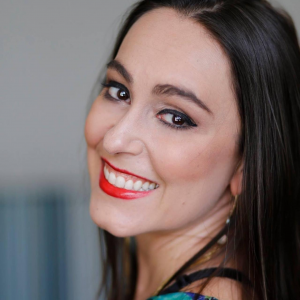
Profa. Dra. Karina Bettega Felipe 
Universidade Federal do Paraná, PR
http://lattes.cnpq.br/2803686235436871
https://orcid.org/0000-0003-2109-4803
Degree in Pharmacy with qualification in Clinical Analysis (UFSC). Master degree and PhD in Biochemistry (UFSC), and posdoc in Molecular and Cell Biology (UFRGS). Assistant professor at Department of Clinical Analysis (UFPR). Professor of the Postgraduate Program in Pharmaceutical Sciences (UFPR). She conducted research in the area of Biochemistry, and Cellular and Molecular Biology of Cancer, and now she is focused on investigating cellular and molecular mechanisms related to the antitumor activity of natural products and synthetic compounds.
Profa. Dra. Kieiv Resende Sousa de Moura 
Departamento de Ciências Morfológicas, Centro de Ciências Biológicas
Universidade Federal de Santa Catarina
http://lattes.cnpq.br/4940482402294015
https://orcid.org/0000-0002-7871-5255
Bachelor’s and Licentiate degree in Biological Sciences (University of São Paulo,1998). PhD in Sciences (Cellular and Tissue Biology) at University of São Paulo (2001). Associate professor at Federal University of Santa Catarina, teaching Histology for the Medicine program. Research activities in Morphology, focusing on Cellular Biology, Histology, Immunohistochemistry, and Electron Microscopy. Since 2014, collaborator in research projects approved by CNPq (401440/2014-1) coordinated by Professor Dr. Fátima Regina Mena Barreto Silva (Department of Biochemistry/CCB/UFSC).
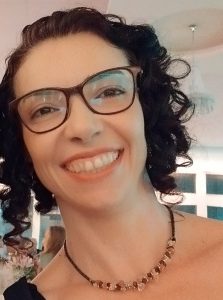
Profa. Dra. Luisa Helena Cazarolli 
Programas de Pós-graduação em Agroecologia e Desenvolvimento Rural Sustentável e Ciência e Tecnologia de Alimentos
Universidade Federal da Fronteira Sul – campus Laranjeira do Sul
https://orcid.org/my-orcid?orcid=0000-0003-4584-7304
http://lattes.cnpq.br/6278040533591393
Graduation in Pharmacy – Biochemistry Pharmacist by the Federal University of Santa Maria (2003), a Master’s degree in Pharmacy from the Federal University of Santa Catarina (2004), and a Ph.D. in Pharmacy from the same institution (2009). She is currently an Associate Professor at the Federal University of Fronteira Sul (UFFS) and has been a permanent professor in the Postgraduate Program in Food Science and Technology-PPGCTAL-UFFS since 2016.
Her research emphasizes medicinal chemistry and natural product research, including studies on flavonoids, chalcone analogues, glycosylated flavonoids, and plant extract toxicology in both aquatic species and hyperglycemic rats.
More recently, her work has centered on functional feed additives —enzymes, yeasts, protein hydrolysates, plant-derived bioactives — and the use of alternative protein sources, such as cricket meal (Gryllus assimilis) and the oleaginous yeast Yarrowia lipolytica. These ingredients are studied for their nutritional value, digestibility, immunomodulatory properties, probiotic/prebiotic potential. Their impacts on growth performance, digestive enzyme activity, immune response, metabolic efficiency, and tissue integrity are evaluated in aquatic species, with translational relevance to human health. She also conducts research on the physiological and biochemical effects of environmental contaminants, such as glyphosate and antibiotics, in aquatic environments. Her projects have received funding from UFFS, CNPq, and Fundação Araucária.
She collaborates with the research groups “Food Production, Processing and Storage”, “Aquaculture and Sustainable Development” at UFPR, and “Endocrine Physiology and Biochemistry” at UFSC. She also maintains partnerships with the Postgraduate Program in Fisheries Resources and Fisheries Engineering at UNIOESTE – Toledo, PR, and the Postgraduate Program in Aquaculture and Sustainable Development at UFPR – Palotina, PR. H index 21 (Scopus and Web of Science). She was awarded a CNPq Research Productivity Fellowship (PQ-C).

Profa. Dra. Marisa Jadna Silva Frederico Canuto 
Departamento de Fisiologia e Farmacologia (DFF)
Núcleo de Pesquisa e Desenvolvimento de Medicamentos (NPDM)
Universidade Federal do Ceará (UFC)
http://lattes.cnpq.br/8330843858504481
https://orcid.org/0000-0002-8254-4727
Instagram: @lab.farmacologiabioquimica.ufc
Adjunct Professor at the Federal University of Ceará – UFC. Researcher at the Medicines Research and Development Center – NPDM. One of the coordinators of the Biochemical Pharmacology Laboratory located at NPDM. It has more than 40 periodicals published in international indexed journals. She works in the following lines of research: New targets for the treatment of diabetes and associated comorbidities. Clinical studies to analyze the therapeutic properties of functional foods. Cell culture of mouse pancreatic beta cells (MIN6 lineage) and myotubes (C2C12) and in electrophysiology. Animal models of diabetes and satiety. Study of the activity on glycemia and lipemia of new compounds of plant origin, peptides, plant secondary metabolites and/or chemically synthesized drugs. Advises master’s and doctorate students in the Postgraduate Program in Pharmacology (CAPES 7) Translational Medicine and Professional Master’s in Pharmacology – UFC (CAPES 4). Email: marisafrederico1@hotmail.com or marisafrederico@ufc.br.
Prof. Dr. Mauricio Martins Taques 
Departamento de Ensino Pesquisa e Extensão – Coordenação de Elétrica
Instituto Federal de Santa Catarina – Campus Joinville
http://lattes.cnpq.br/1104466619668765
https://orcid.org/0000-0003-1657-2305
Graduated in Electrical/Electronic Engineering/Industrial Telecommunications. from UTFPR, a master’s degree in Electrical Engineering and Industrial Informatics from UTFPR and a doctorate in Electrical/Biomedical Engineering from UFSC. Currently, titular professor at IFSC. Experience in the area of Electrical Engineering, working mainly in telecommunications, education, industrial drives, electronics and biomedical engineering. I performed administrative functions as Course and Area Coordinator, Teaching Director and General Director of the Campus.
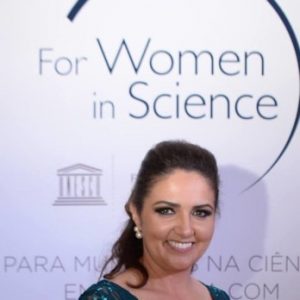
profa. Dra. Patricia S. Brocardo 
Morphological Sciences Department
Neuroscience Graduate Program
Federal University of Santa Catarina/UFSC, Florianópolis, Brazil
https://orcid.org/0000-0002-1680-5909
http://lattes.cnpq.br/1937185573154113
Dr. Brocardo is an Associate Professor at the Federal University of Santa Catarina (UFSC, Brazil) and a supervisor in the Neuroscience Graduate Program. She has been the coordinator of the Neuroplasticity laboratory group since 2017. Her research aims to understand the role of neuroplastic processes during development and neurodegeneration and to develop neuroprotective therapeutic approaches. Dr. Brocardo served or is currently serving as a mentor for 10 Undergraduate students, 10 Master’s students, 8 Ph.D. students, and 1 postdoctoral fellow. Dr. Brocardo was also the sub-coordinator of the Graduate Program in Neuroscience (2019-2021).

Rodrigo Costa Zeferino, Ph.D 
http://lattes.cnpq.br/0820937548414197
https://orcid.org/0000-0003-2701-6777
Graduated in Pharmacy and Master in Health Sciences from the Universidade do Extremo Sul Catarinense (UNESC, 2011). PhD in biochemistry from the Postgraduate Program in Biochemistry of the Federal University of Santa Catarina / CAPES-DS scholarship (2019), and postdoctoral fellow in the same program (2021-2022). Postdoctoral researcher abroad by the Postgraduate Program in Pharmacy (UFSC, 2022-2023), a project carried out in bilateral cooperation between the government of Brazil and the government of Portugal. It was carried out in partnership with the Universidade Nova de Lisboa, Instituto de Tecnologia, Química e Biologia Antônio Xavier – Oeiras – Portugal, where in silico studies were developed using bioinformatics tools to predict interactions between target macromolecules and the ligand (Akt1 and small molecule ligands), with funding from the FCT / Capes. In 2023-2024 he was a postdoctoral researcher in the postgraduate program in Chemistry – UFSC.
He has experience in the area of molecular toxicology through in vitro and in vivo studies, in addition to having experience in the area of Bioinformatics through the planning, execution and interpretation of results obtained from probabilistic data and in silico simulations of docking and molecular dynamics using macromolecules (DNA or proteins), and small binding molecules with cellular activity.
Profa. Dra. Virginia Demarchi Kappel Trichez 
Faculdades de Ciências da Saúde – FCS
Universidade Federal da Grande Dourados – UFGD, MS
http://lattes.cnpq.br/6266522919159991
https://orcid.org/0000-0001-5784-7542
Graduation in Pharmacy: Pharmacist Biochemistry by the University of Passo Fundo (2004), Master’s Degree in Biological Sciences – Biochemistry by the Federal University of Rio Grande do Sul (2008) and PhD in Pharmacy by the Federal University of Santa Catarina (2012). She is currently a professor at the Faculty of Health Sciences of Grande Dourados – UFGD. Thematic in the area of Biochemistry, with emphasis on biochemistry, diabetes, cell signaling and oxidative stress, working mainly on the following theme: natural products with biological activities.

